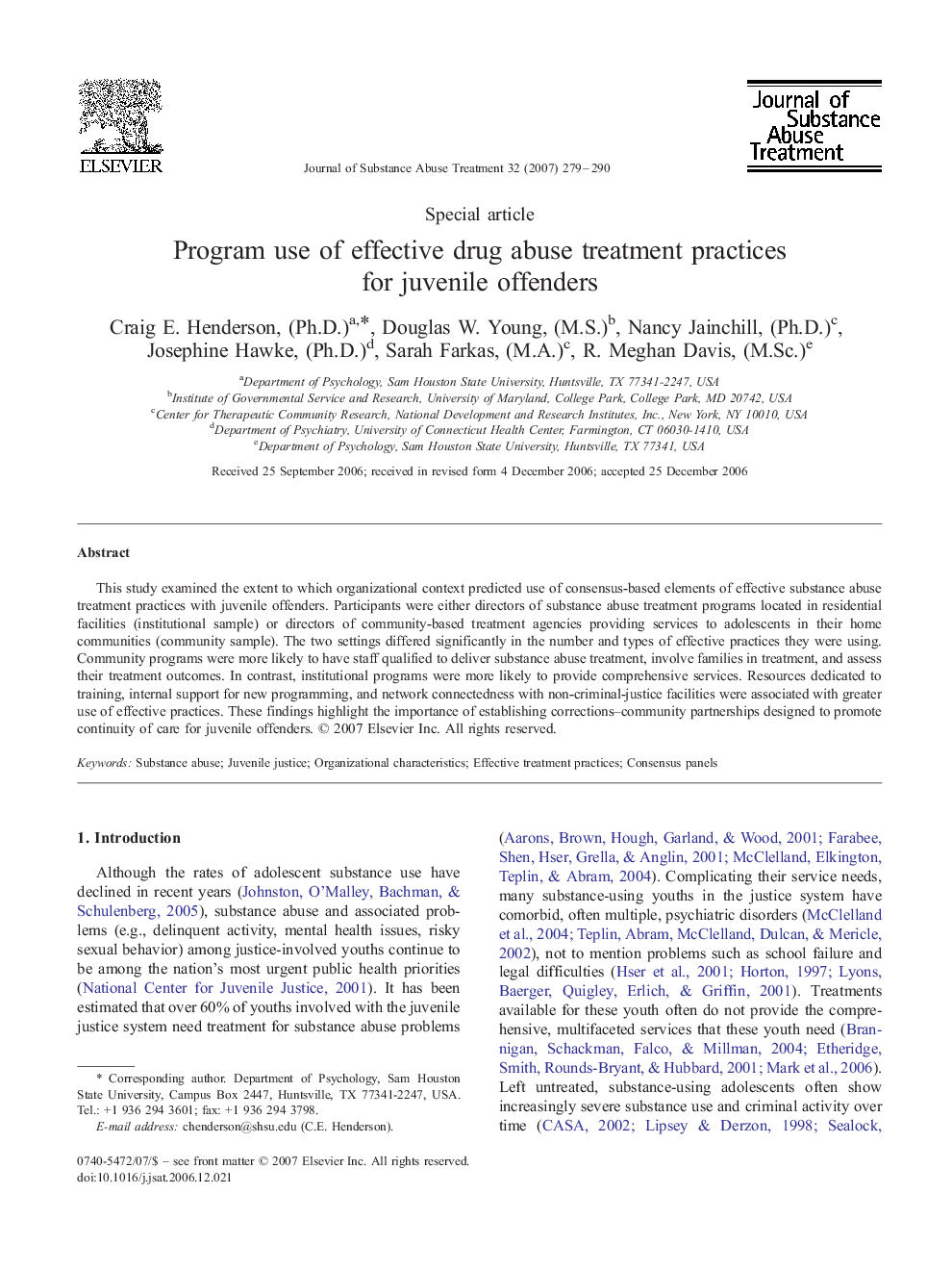| Article ID | Journal | Published Year | Pages | File Type |
|---|---|---|---|---|
| 330131 | Journal of Substance Abuse Treatment | 2007 | 12 Pages |
This study examined the extent to which organizational context predicted use of consensus-based elements of effective substance abuse treatment practices with juvenile offenders. Participants were either directors of substance abuse treatment programs located in residential facilities (institutional sample) or directors of community-based treatment agencies providing services to adolescents in their home communities (community sample). The two settings differed significantly in the number and types of effective practices they were using. Community programs were more likely to have staff qualified to deliver substance abuse treatment, involve families in treatment, and assess their treatment outcomes. In contrast, institutional programs were more likely to provide comprehensive services. Resources dedicated to training, internal support for new programming, and network connectedness with non-criminal-justice facilities were associated with greater use of effective practices. These findings highlight the importance of establishing corrections–community partnerships designed to promote continuity of care for juvenile offenders.
